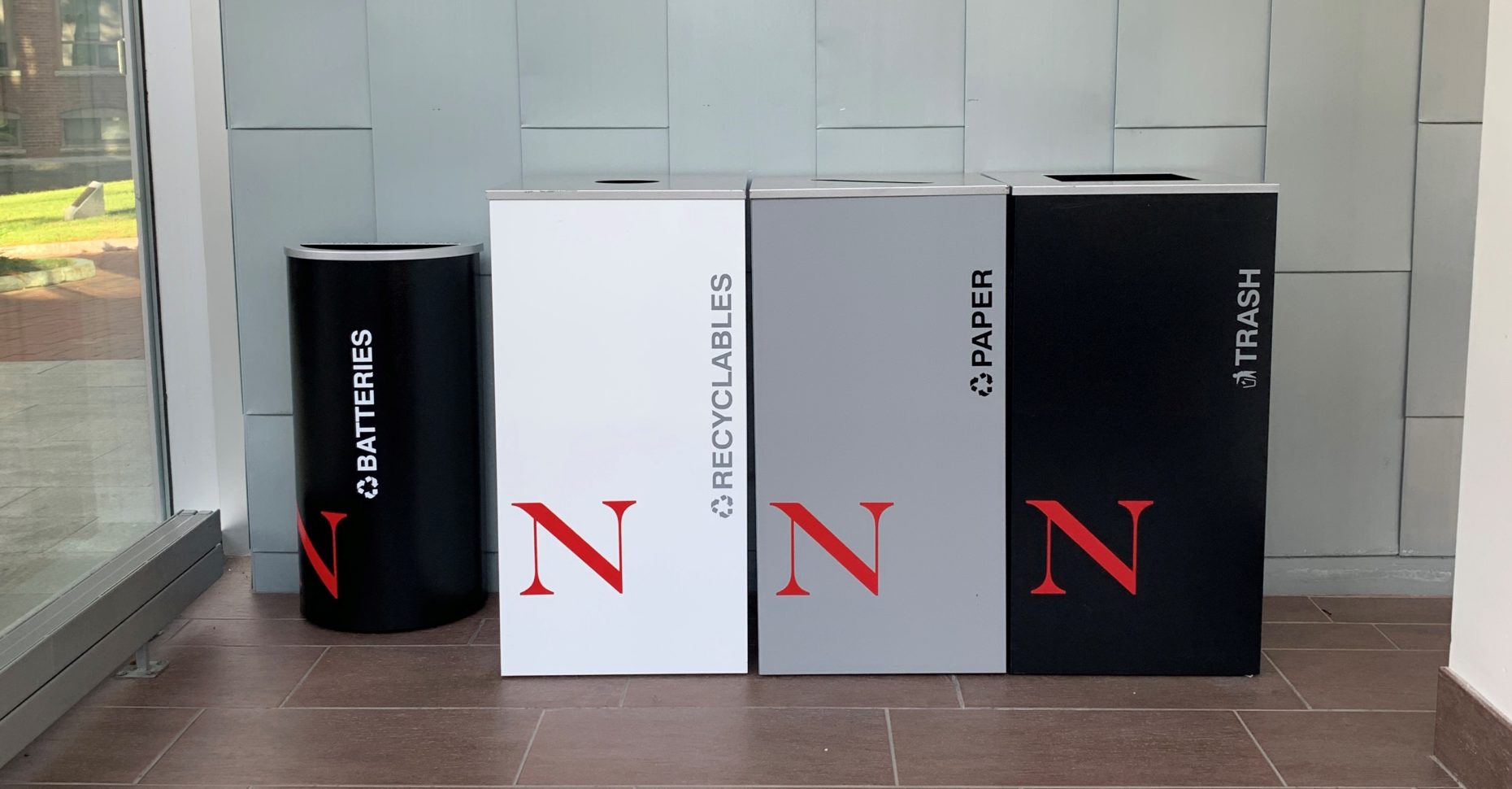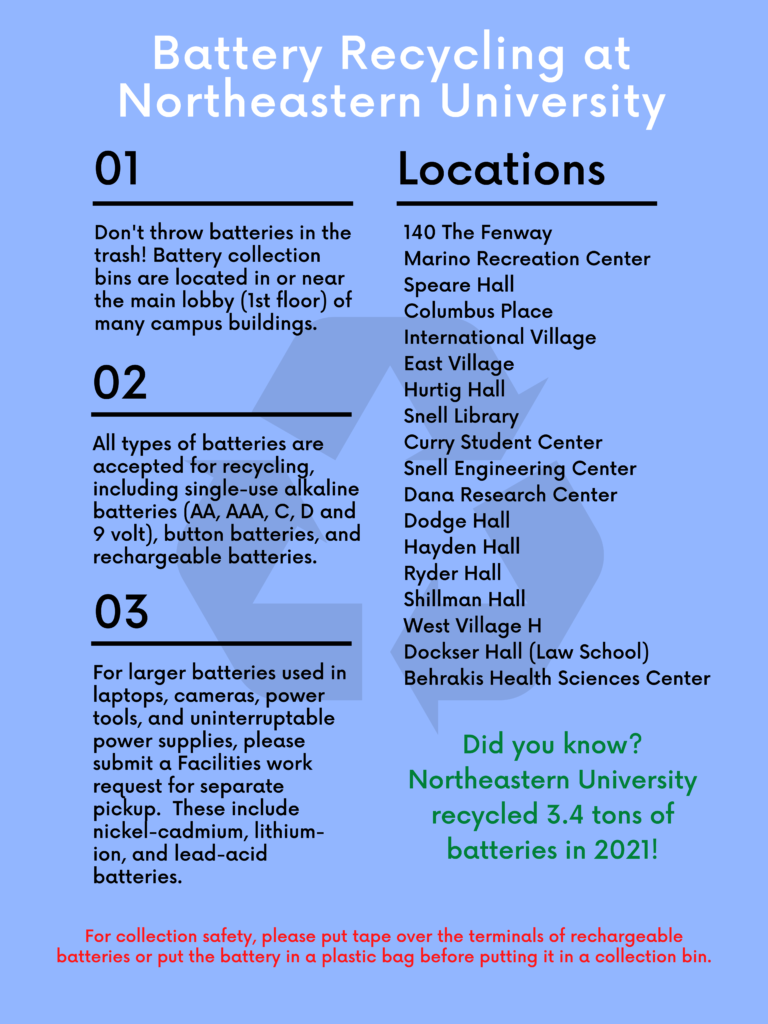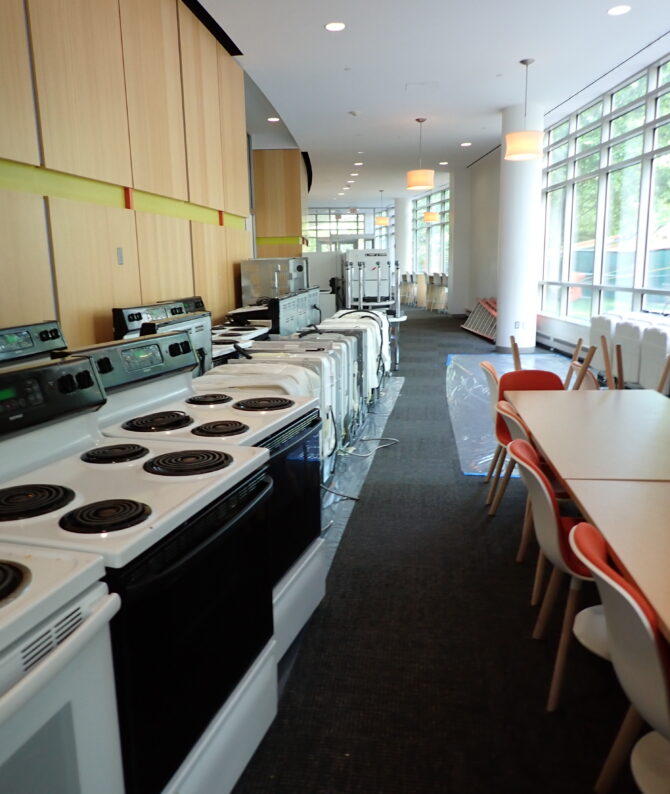New Battery Drop-Offs

Last Friday, Northeastern unveiled a series of new battery drop-off bins across campus, which will allow members of the university community to have their old batteries safely recycled, including lithium and alkaline. In past years, one would have to submit a work request to dispose of old batteries. Members of the Northeastern Facilities team would come to pick the batteries up and have them recycled. While this was effective for batteries being disposed of in bulk, such as from an engineering lab, it was not as efficient for students with only a small number of batteries to dispose of at a time. “We do get requests that people have a battery, and they’re doing the right thing. They have a battery, and they want to recycle it,” says Sue Higgins, Associate Director of Materials and Recycling at Northeastern. “So it’s fulfilling a need that we’ve seen exist out there because people are putting in requests asking us to pick up a small number of batteries. [The battery drop-off bins] will enable us to get those in a more efficient way [that is] visible and available.” Northeastern recycled 3.4 tons of batteries in 2021. With increased accessibility, this number will continue to grow.
The drop-off bins will accept all types of batteries, including alkaline batteries. “If you go on to the MassDEP [Massachusetts Department of Environmental Protection] website and say, ‘What do I do with my batteries?’ they will tell you [alkaline batteries] are safe to throw in the trash,” says Higgins. “But we are taking the step to actually recycle them. We have a vendor and the ability to do it.”
The vendor partnering with Northeastern is Complete Recycling Solutions (CRS), based out of Fall River, Massachusetts. The company accepts all chemistries of batteries. “Most batteries contain heavy metals and hazardous materials that should not be thrown into the trash,” explains Keith Boyea, Director of CRS. “Many batteries are also very reactive such as Lithium and Lithium-ion, which can cause fires if not handled properly.” CRS collects the batteries from Northeastern, sorts them into categories, and packages them for shipment. From there, the batteries are shipped to an R2-certified downstream vendor; Battery Recycling Made Easy (BRME) in Georgia. R2 certification refers to the EPA’s Responsible Recycling (“R2”) standard for electronics. Once there, BRME recycles the batteries using a hammermill or shredder. The plastic, metal, and other commodity materials from the recycling process are recovered for future use.
“The mission of CRS is to provide recycling solutions for universal wastes and electronics while providing a high level of service to our customers throughout the Northeast,” says Boyea. “CRS strives to provide excellent service and sustainable recycling options to avoid toxic components being thrown out into the solid waste stream.”
Northeastern has several battery drop-off bins located throughout campus. According to Higgins, the bin locations were tailored to coincide with “readily accessible common areas.” Current battery drop-off bins can be found at the following locations below.
 |
Written by Daria Healey, on Sept. 21st 2022



